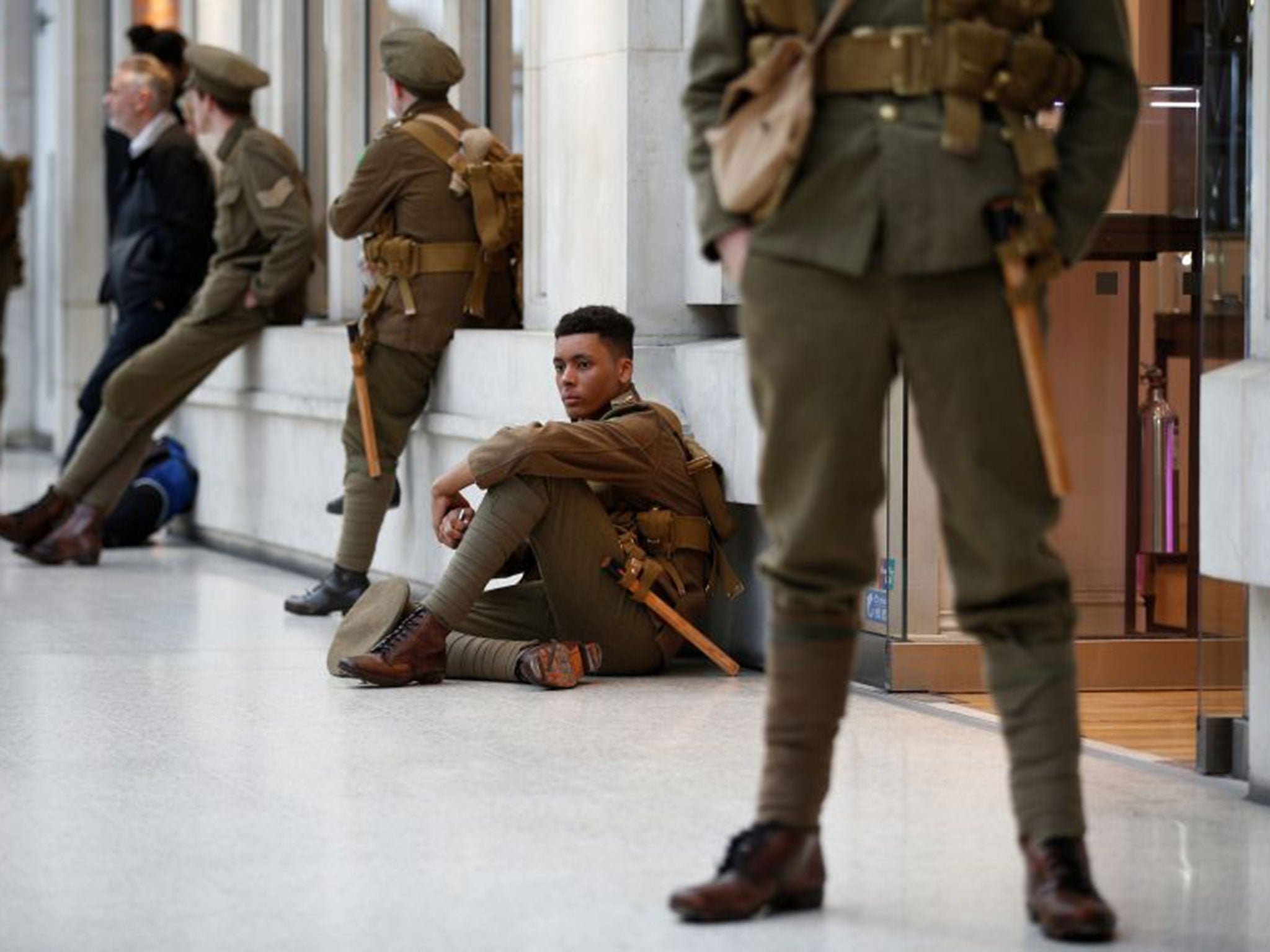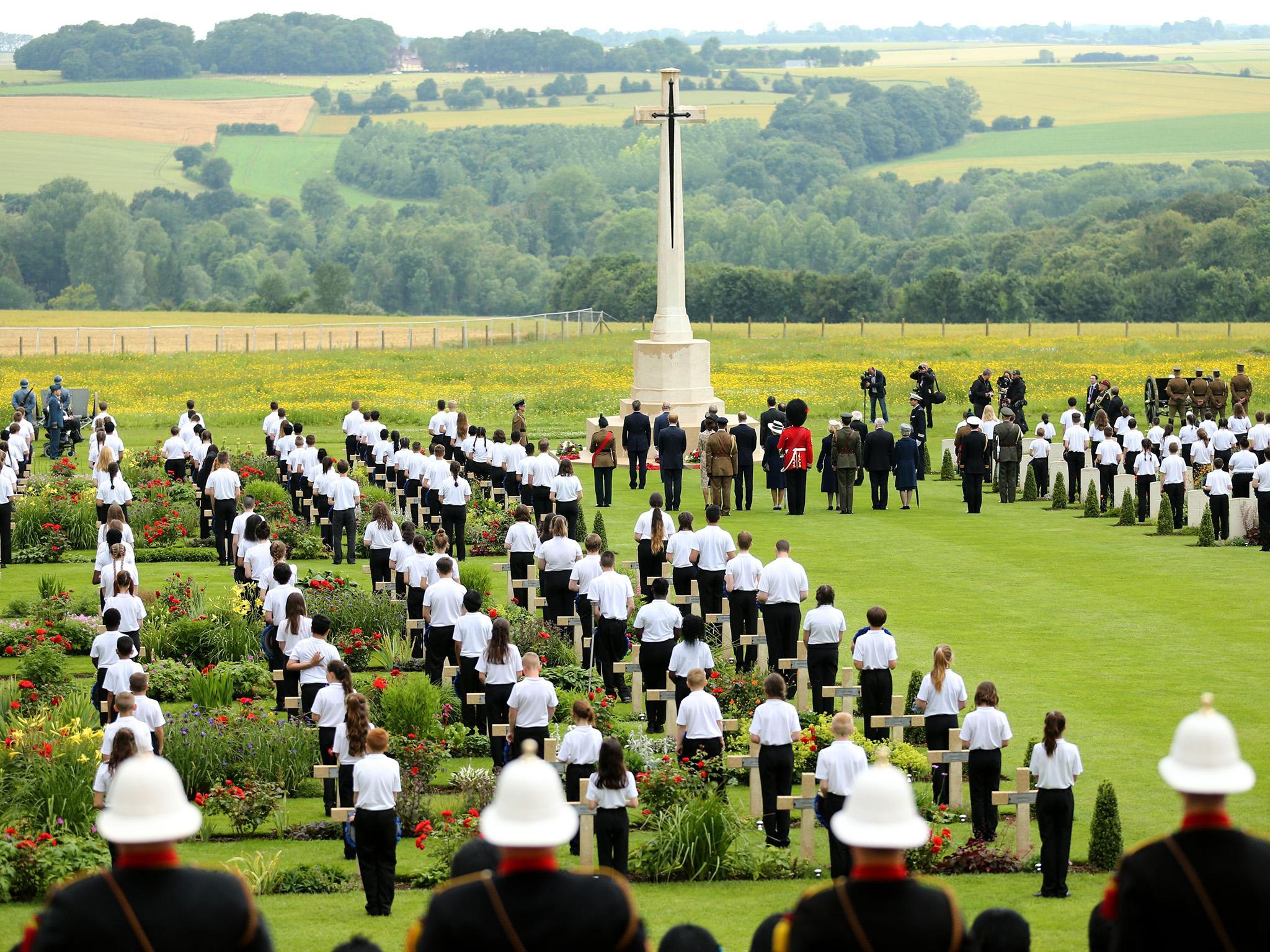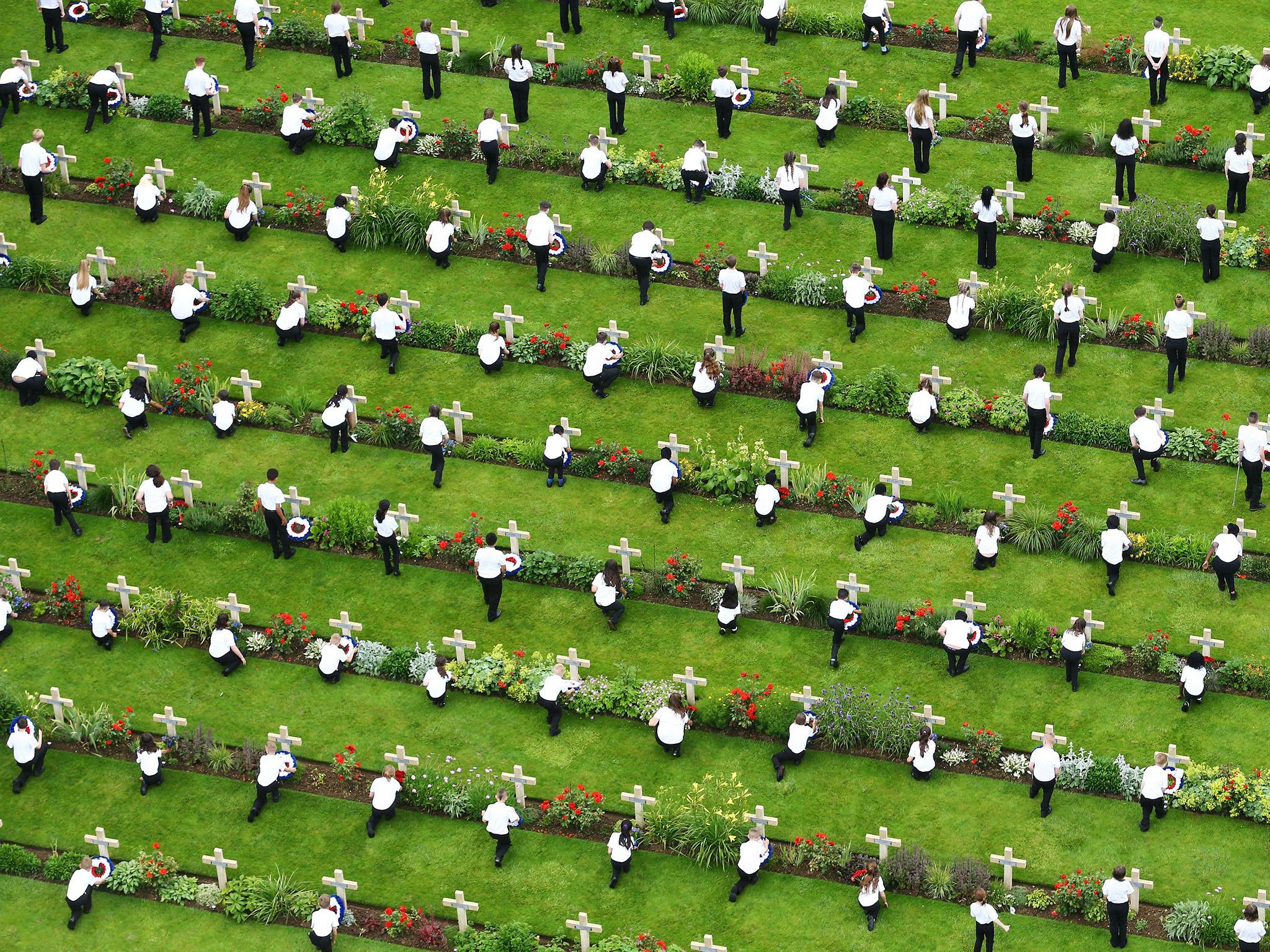Battle of the Somme commemorations: Thousands of 'soldiers' parade through Britain's towns as we remember human cost of the Great War
Thousands of volunteers dressed in World War One combat uniforms appeared across towns and cities in the UK

The British and the French remembered the dead of Somme today, the centenary of the first day of the battle with people gathering at war cemeteries, in churches and on the streets of villages, towns and cities. The offensive, which began on 1 July 1916, was supposed to end the bloody deadlock on the Western front. After a bombardment, with 1.6 million rounds fired, lasting a week, British, French and Commonwealth troops were sent to German positions with allied commanders promising a swift victory. By the end of that first day, the total of British and Commonwealth dead alone had reached 19,240.
The slaughter was to last four and half months. The Germans lost 465,181, the British and Commonwealth forces 419,654 and the French 202,567. By the end the allies had advanced just 6.2 miles. What happened became symbolic of the human cost of the First World War, the search for accord and cooperation in Europe afterwards and the forming of the League of Nations.
In a ceremony at Thiepval Memorial, near the battlefield, the Archbishop of Canterbury, the Most Reverend Justin Wellby, prayed for “those who faced the terrible waste and devastation, those who fought against all the odds, who endured the clinging mud and squalor of the trenches”.
David Cameron read out the words of Corporal Jim Crow, of 110 Brigade, Royal Field Artillery, who had remembered the moments of compassion and empathy amid the violence. The actor Charles Dance read Siegfried Sassoon’s poem Have You Forgotten Yet. Prince Charles gave a reading from The Old Front Line by John Masefield.
The Queen and the Duke of Edinburgh attended a service at Westminster Abbey. The Queen laid flowers at the Grave of the Unknown Soldier. The Bishop of London, the Right Reverend Dr Richard Curtis, stressed the legacy of the dead was the belief that people must work towards reconciliation and cooperation to ensure that their children did not have to endure conflict.

Meanwhile, thousands of volunteers dressed up as soldiers in WW1 combat uniforms appeared across towns and cities in the UK, in a performance art event commissioning by 14-18 Now. They handed out cards to passersby, each one giving the name, rank and battalion of a solider who died in the attack, as well as their place of death and age. The work was created by artist Jeremy Deller and Rufus Norris, Artistic Director of the National Theatre.

The peace treaties after the First World War did not end global conflict. The terms of some of the treaties contributed, in fact, towards the conflagration of the Second World War. There have been conflicts in Europe, in the Balkans, in Georgia and in Ukraine since then. One of the stated aims of the European Union is to end strife in the continent.
The Somme commemoration took place at a time of tension in Europe, the rise of extremist parties and just over a week after Britain voted to leave the European Union. Society, said the Bishop of London, must reject “those who would stir up hatred and division”.
The intervening hundred years since the battle have also seen changes in Britain’s fortunes. In 1916 it was a pre-eminent power with a massive empire and a mighty military. More than 100,000 soldiers were on that one frontline, more than the entire size of the British army now. Britain’s economy has slipped from fifth in the world to sixth since Brexit.
Additional reporting by Independent staff
Join our commenting forum
Join thought-provoking conversations, follow other Independent readers and see their replies
Comments